US blacklists Iranian regime's 'front companies'
Washington has long argued that economic pressure is the best way to frustrate Iran's attempts to build an atomic bomb
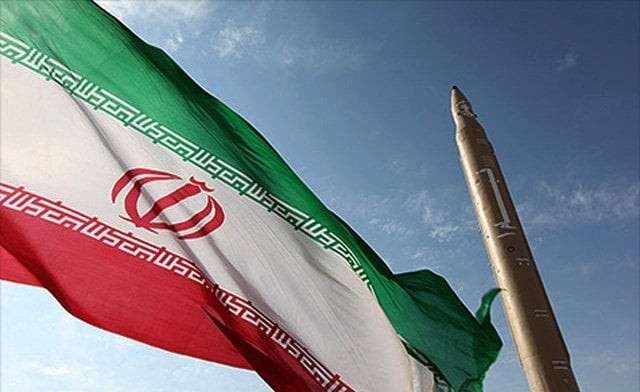
File photo of Irani flag. PHOTO: AFP/ FILE
The US administration aims to deprive the Islamic republic's leadership of billions of dollars by clamping down on what it said were businesses that circumvent existing sanctions, hoping to land a crippling blow to what world powers reiterated is a nuclear program that flouts international rules.
It marked a second major move by the White House in as many days, following Monday's unveiling of aggressive new sanctions focused on the rial currency for the first time and also the auto sector, a key source of jobs and revenue.
Tehran's arch foe Washington has long argued that upping economic pressure is the best way to frustrate and ultimately halt Iran's attempts to build an atomic bomb.
The latest steps taken in Washington come ahead of Iran's June 14 presidential elections and follow Tehran's refusal to cede ground in stalled world power talks on its nuclear program.
"The window of time is shortening, and the time to really ramp up the pressure is now," Treasury Department under secretary for terrorism and financial intelligence, David Cohen, warned a Senate panel as he explained how the new sanctions would hit Iran's leadership.
"Tehran faces a choice: it can address the call of the international community to give up its nuclear ambitions and be permitted to reintegrate itself diplomatically, economically and financially into the world community, or it can continue down its current path and face ever-growing pressure and isolation."
The US Treasury said the 37 companies now blacklisted under The Execution of Imam Khomeini's Order both pull in money from state business for Iran's leaders and work to skirt round international sanctions on the regime.
"EIKO and its subsidiaries... work on behalf of the Iranian government and operate in various sectors of the Iranian economy and around the world, generating billions of dollars in profits for the Iranian regime each year," the Treasury said.
It said EIKO, established about 10 years ago to manage the investments of Iran's leadership, works through two main holding companies, Tadbir Economic Development Company and Tosee Eqtesad Ayandehsazan or TEACO, which helps the regime subvert sanctions through its network of operating companies in central Europe, Germany, South Africa and United Arab Emirates.
President Barack Obama has now signed nine executive orders on restrictions against Iran, and the sanctions have sent Iran's currency into a tailspin, with the rial losing two-thirds of its value in the past two years.
They have also slashed Iran's crude oil exports by half over the last 18 months, amounting to between $3 billion and $5 billion in lost profits every month, Cohen said.
And yet he recognized that the actions against Tehran have so far failed to jolt the leadership into reversing their nuclear course.
"We have substantially increased the pressure on Iran over the past several years... (but) we have not yet achieved the objective, which is to change the Iran government's calculus," Cohen said.
Six world powers shared similar worry on the eve of Wednesday's UN atomic agency meeting in Vienna.
The US, China, Russia, Britain, France and Germany are "deeply concerned that Iran continues to undertake certain nuclear activities" in contravention of UN Security Council resolutions, according to a draft statement.
Iran insists its nuclear program is peaceful.
While some Republicans have hailed the White House's tough line, others say more could be done.
"The resolve of the United States and its partners must remain strong and be ready to implement a series of increasingly stricter sanctions that push the Iranian regime to change its nuclear enrichment calculus," said Senator Mike Crapo, the Banking Committee's top Republican.
Meanwhile, Under Secretary of State for Political Affairs Wendy Sherman testified that the Iranian leadership's "campaign of repression" against its own people was on the rise ahead of the elections.


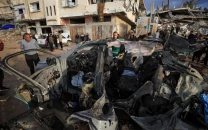
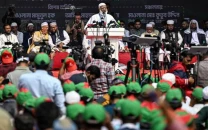

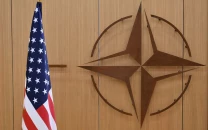
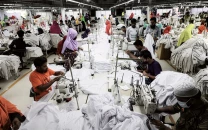












COMMENTS
Comments are moderated and generally will be posted if they are on-topic and not abusive.
For more information, please see our Comments FAQ